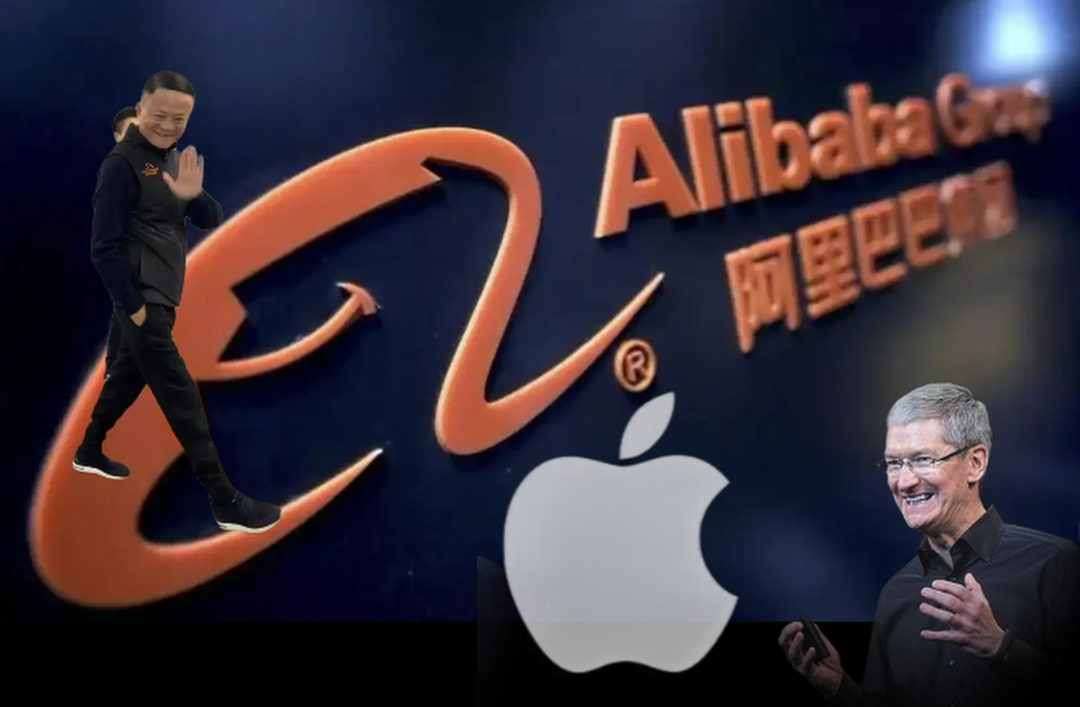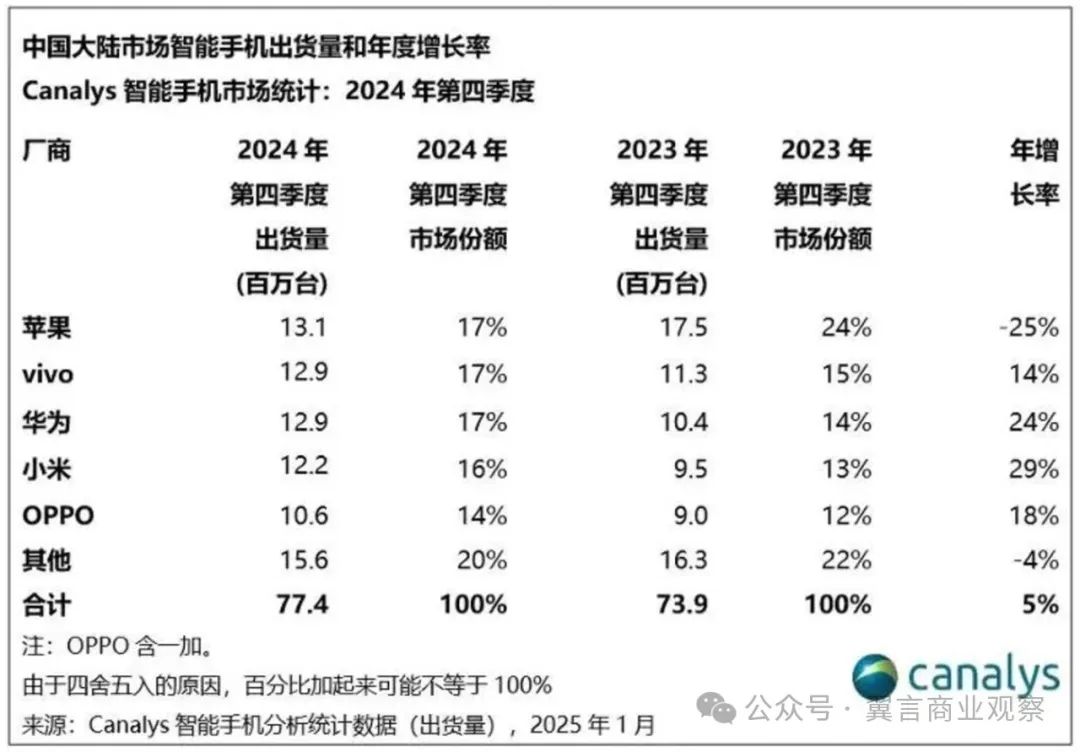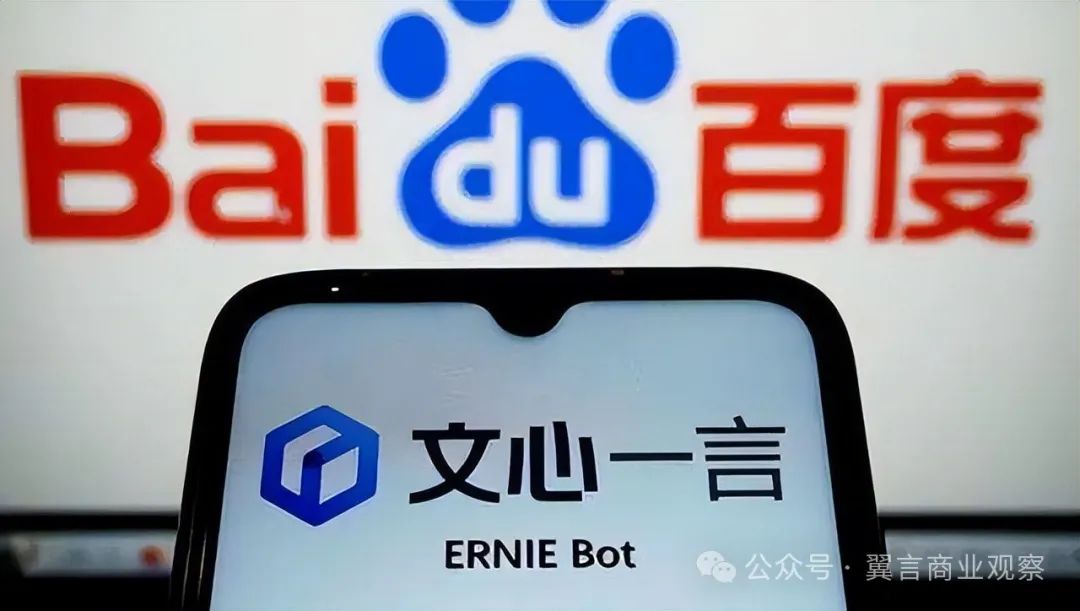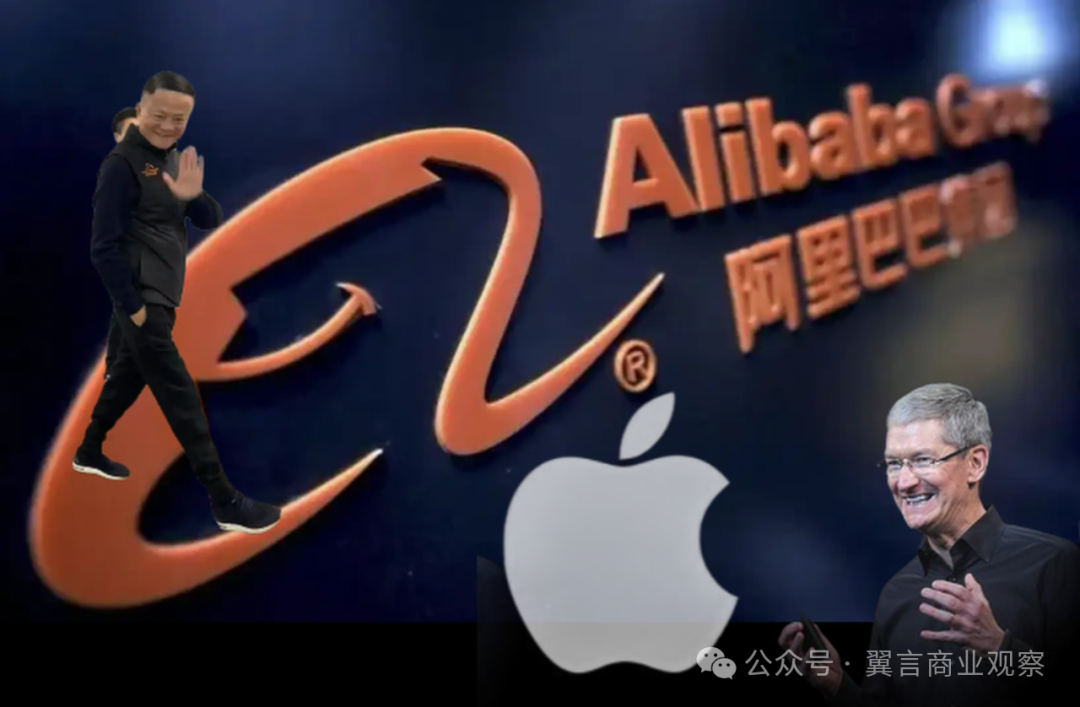Apple and Alibaba: A Strategic Partnership Redefining Tech Competition
![]() 02/13 2025
02/13 2025
![]() 587
587

Business Insights by Yiyan
Alibaba's AI is set to conquer new horizons.
Yiyan Team |
Full Text: 2110 words, Estimated Reading Time: Approximately 4 minutes |
On February 11, news broke of Apple's collaboration with Alibaba to develop exclusive AI features tailored for Chinese iPhone users, sending shockwaves through the capital market and propelling the share prices of both companies skyward.
This seemingly routine business partnership harbors multiple strategic intentions: it serves as an "emergency measure" for Apple to address its declining market share in China, while also marking a significant leap for Alibaba's technology to venture into the global arena. This partnership reflects a novel paradigm of technological competition and cooperation between China and the United States.
I. Apple's Quest for the Ideal 'Chinese AI Partner'
Since 2023, Apple has embarked on a "global search" for Chinese AI enterprises, including heavyweights like Baidu, Alibaba, Tencent, ByteDance, and DeepSeek, in search of localized technical solutions to bolster its global strategy, "Apple Intelligence," in China.
Behind this "global search," Apple's primary objective is to reverse its declining market position in China.

| Smartphone Shipments in the Chinese Mainland Market in Q4 2024 |
According to Counterpoint data, in the fourth quarter of 2024, Huawei's sales surged by 15.5% year-on-year, Xiaomi's by 3.9%, whereas Apple's dropped by 18.2%. Canalys data also indicates that in the same quarter, iPhone was the only brand among the top five smartphone makers to experience negative growth. This downward trend has persisted into 2025.
The absence of Apple's AI feature, "Apple Intelligence," in the Chinese market is widely perceived as a key factor contributing to the decline in sales and revenue. During last month's earnings call, Apple CEO Tim Cook attributed the sales drop in the Chinese market, in part, to the delayed launch of "Apple Intelligence" in China.
Therefore, Apple's quest for a Chinese AI partner has been meticulous and cautious.

Baidu was once considered the most likely candidate, with rumors swirling about a preliminary partnership. Its Wenxin large model's technical prowess and robust government relations network offered natural advantages.
However, Apple's stringent standards for model performance, such as intent comprehension and user behavior data integration, were not met by Baidu, which fell short of Apple's expectations for generative AI response speed and the depth of personalized services, ultimately leading to the collapse of the partnership.

DeepSeek, a recently globally acclaimed startup, was also within Apple's testing ambit. Its model excelled in technical evaluations, but its team size and service experience were inadequate to support Apple's needs, particularly in managing large-scale user concurrency and data security compliance.
Apple had to strike a balance between technical adaptability and policy compliance, hence the question:
Why Alibaba?
II. Alibaba's Three Key Advantages
Apple's choice of Alibaba for AI cooperation in the Chinese market was not arbitrary but based on in-depth considerations of technological capabilities, data resources, and ecosystem complementarity.
Technological Strength
Alibaba has consistently invested in the AI field in recent years, making extensive layouts under its "AI-driven" strategy. Its technological prowess has been widely acknowledged through the 2024 Summer Olympics and the 2025 CCTV Spring Festival Gala. Its newly released trillion-parameter large model, Qwen 2.5-Max, claims to outperform international top models like GPT-4o in performance.
Clearly, compared to other partners Apple has previously tested, Alibaba's technological maturity and service experience are superior.
Moreover, as China's largest public cloud service provider, Alibaba Cloud's computing power resources can directly support the training and inference of AI models, reducing Apple's localized deployment costs.

Data Assets
User shopping, payment, and geographical location data accumulated on Alibaba's platforms, such as Taobao, Tmall, and Alipay, constitute a treasure trove for understanding Chinese consumer behavior. These data can aid Apple's AI in delivering more precise personalized recommendations, such as scenario-based services tailored to consumption habits.
This deep integration of data resources is a barrier that Apple's self-developed AI cannot easily replicate and is also incomparable to Baidu, which primarily relies on search data, and Tencent, which primarily relies on social data.
Ecosystem Synergy
There is a natural complementarity between Apple's hardware ecosystem and Alibaba's localized services (such as Alipay, Gaode Maps, Cainiao Logistics, etc.). Through this collaboration, Apple can swiftly access the digital service network in the Chinese market, while Alibaba can expand its technology application scenarios by leveraging the iPhone user base, forming a closed loop of "hardware + AI + services."
Alibaba's partnership with Apple also signifies that data resources and scenario-based capabilities have emerged as new core elements in AI competition.
For Apple, Alibaba's three key advantages clearly constitute a winning hand, and the subsequent surge in its share price is merely the prelude.
Morgan Stanley analyzed that this partnership with Alibaba will be a "key catalyst for Apple's competitiveness in the Chinese market" and may address the sluggish iPhone sales in China. JPMorgan Chase further noted that this collaboration supports the market's "bullish expectations" for Apple's anticipated launch of iPhone 17 this fall, and Apple is expected to regain consumer favor during the hardware upgrade cycle.
III. Alibaba's Global Ambitions and Technological Expansion
For Alibaba, this partnership, where it participates as a key player in developing core functions within the global top hardware ecosystem, is not only a recognition of its technological prowess but, more importantly, provides an opportunity for Alibaba to further expand its application and service markets in To C scenarios, marking a significant leap in its globalization strategy.
Alibaba Cloud has long focused on enterprise services, and through this collaboration, Alibaba can reach hundreds of millions of iPhone users via Apple devices. This not only offers a large-scale deployment scenario for Alibaba's AI technology, facilitating its transition from a "cloud service provider" to a "terminal AI service provider," but also accelerates the penetration of its AI technology into the consumer end, increasing its leverage against competitors like ByteDance for C-end entry points.
Amidst the slowing domestic internet growth, this partnership with Apple also opens up new revenue growth avenues for Alibaba and enhances its technology-related valuation in international capital markets.

Expanding our perspective, this collaboration transcends the business logic at the corporate level.
The traditional AI technology chain dominated by the United States (such as chips and algorithms) is being partially supplanted by application innovations from Chinese enterprises, and multinational giants are starting to opt for more pragmatic paths to integrate into local ecosystems. Today, besides Apple teaming up with Alibaba, Samsung has chosen Zhipu GLM. In international cooperation, Chinese technology enterprises are moving from the technology application layer to the infrastructure layer.
It is reported that the first batch of features developed through this partnership has been submitted for regulatory approval. This process will test how cross-border technological cooperation can balance innovation and compliance. If successful, it may serve as a policy model for subsequent similar international collaborations.
Conclusion
Apple's partnership with Alibaba is not merely a commercial collaboration where both giants fulfill their respective needs but also a microcosm of the global technology industry shifting from a "zero-sum game" to a "symbiotic win-win" scenario. For consumers, this translates into a smarter localized experience; for the industry, it heralds a new wave of innovation fueled by the fusion of technology, data, and ecosystems.
However, whether this partnership can break the "Apple dilemma" and yield a substantial degree of mutual benefit remains to be seen over time.
One thing is certain: this is a promising start.
END








